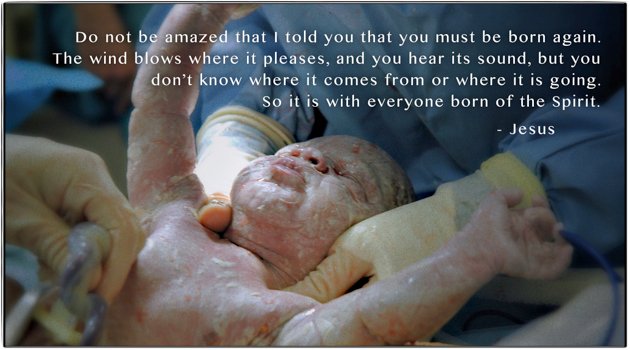Holding Tight Didn’t Bring Peace.
My story led me to a place where control and peace were linked together. I wanted peace. I imagined that meant less stress and emotional strain. The path there was through more control. By controlling my emotions, containing and suppressing them, I’d feel less pain. By controlling the world around me, I’d keep bad things from happening.
The more things went the way I wanted, the more peaceful I felt. But when things didn’t go my way? Stress and pain sky-rocketted.
I’ve been learning these past few years that this script from my childhood doesn’t work. I can’t create peace (inner or otherwise) through micro-management. In fact, the opposite was true. The more I tried to control things, the more struggle and strain I introduced into my world. My emotions leaked out. I had unattended sharp edges that hurt the people around me. Working through all of this has been the project of the last two years.
The more I’m learning about “letting go, and letting God,” the more I’m seeing things differently, even long-held spiritual things, like “being born again.”
Born Again Means What?

That’s a phrase that evangelical Christians use a lot with a very particular meaning. These two words come from Jesus’ conversation with Nicodemus in John 3, but they’ve taken on a life of their own.
They are code words that signify the process of a non-Christian becoming a Christian by accepting Jesus as their Lord and Savior, repenting of their sin, and asking God to guide their lives. Depending on your spiritual tradition, the code might also include being baptized in water, speaking in tongues, or agreeing with a denominational statement of beliefs.
The words “born again” are embedded in evangelical culture, but they are often stripped out of their original context. Remember: Context is what gives us understanding when it comes to scripture. When certain words get mined out of their context, we start making up meaning on our own. So, what’s up with these words originally?
Here’s the context: John 3:1-21. Read it. Take note of the surprising lack of Evangelical salvation language. There’s no confession of sin. There’s no “Sinner’s Prayer.” In fact, if you set aside all your preconceptions about what this phrase means, and just read the text, you see something strange.
Nicodemus heard Jesus saying something radical and completely absurd. You can tell by his response. He thought Jesus was saying that the only way into God’s new kingdom was some kind of physical birth. He thought that was crazy. Even after Jesus explained himself again, Nicodemus’ said, “How can these things be?!” He simply couldn’t believe it.
If Jesus said all you need to do is to say a certain prayer, that wouldn’t have blown Nicodemus’ mind. He didn’t say that.
Jesus said that it takes something like a whole new birth to enter into the spiritual life. Now think about that for a moment. Being born is a powerful, traumatic transition. We go from the protected environment of the womb, through a painful, high-impact, physically dangerous period of labor and pushing and struggle. Through all of the blood, sweat and tears, we emerge into this thing we call life.
Jesus is saying that it takes a transition like this to bring people from a state of spiritual inertia into a new state of vibrant spiritual life. Before you were one thing. After, you were something else.

Your System Can’t Control God.
Why was this idea so absurd to Nicodemus? He was used to having a system. He was a good religious man. He kept the Sabbath and observed the laws of ritual cleanliness. He practiced charity and gave his tithes at the temple. He kept up with his required sacrifices and obeyed the Torah as best as he could.
I’ve been that guy. Maybe you have too. He was used to knowing what he needed to do to honor God. When you’re used to having a system like that, sometimes you come to believe that if only you’ll work the system then God has to measure up to your expectations. If you work the system, for sure, you’ll get in. The spiritual life, and salvation and even God, answered prayers–this all becomes stuff you can manage. After all, you did your part, right?
But being born isn’t like that. It’s out of your control. You don’t get to decide what it looks like. It involves other people, and a good deal of struggle and pain, and embarrassing facial expressions. It’s not something that you work at; it’s something that happens to you.
In the same way, we don’t get to manage spiritual re-birth. We don’t get to manage God!
I relate a lot to Nicodemus. I grew up in a religious home in a very conservative religious community. I learned the system. On good days I did all these things because I really loved God and wanted to honor Him. On many days, I did all these things because it earned me value in my community and gave me a sense that God approved of me. All of this fed into my need to control my world. Now it wasn’t just my emotions at stake. It was my spiritual life, and my acceptance with God.
Letting God.
But now I’m seeing something different. I still have a role to play. God will never force His way into my life against my will. I have to choose. Every day I get to re-choose whether I will pursue God. But, the bigger picture is this: I can’t control or manage God. Even the process of being “born again,” something that I learned was so clear-cut and concrete, is out of my control.
And so, in the middle of crazy circumstances that have radically shaken my life, I’m learning to trust the birth process, and allow the Wind of the Spirit to blow where it will. I’m not in control of it. I never have been. Somehow, in a way that seems crazy to my control-habituated mind, that’s making it easier for me to trust God.
Even more unexpected, in the middle of circumstances that are painful and completely out of my control, I’m feeling the edges of peace.
This post is the core of a sermon of mine. To watch the whole thing, and get more of the Biblical background, you can catch it here, on Youtube.

Marc, while I have a different faith, I can completely understand where you are coming from about being in control. So much of this world is beyond our control. If I understand you correctly, we get to choose each day whether or not to be “born again” but how that unfolds is beyond our control.
This reminds me of Viktor Frankl’s book “Man’s Search For Meaning.” He was a psychologist writing about his experiences in the concentration camps. He writes that man cannot chose his circumstances, only how he responds to those circumstances.
Hey Greg, cool to see you over here at my blog! I’m still enjoying your posts in my inbox. You’ve given me a lot to think about.
You’re reading me right. Christianity has placed a huge emphasis on the one-time event of “being born again.” I don’t think this is wrong, but I do think it makes it harder for us to think about what it means to choose, every day, the life we will live. Frankl’s book is a good one. It really impacted my thinking.
My own life in the past months has been a spiritual discipline of learning that I am not in control. (Even on Friday, a small non-profit ropes course that my wife runs had all of it’s equipment stolen. Thousands of dollars of climbing ropes, harnesses, helmets and other gear. It was such a kick in the gut.) Another opportunity to choose who I am going to be today, given the world I live in.